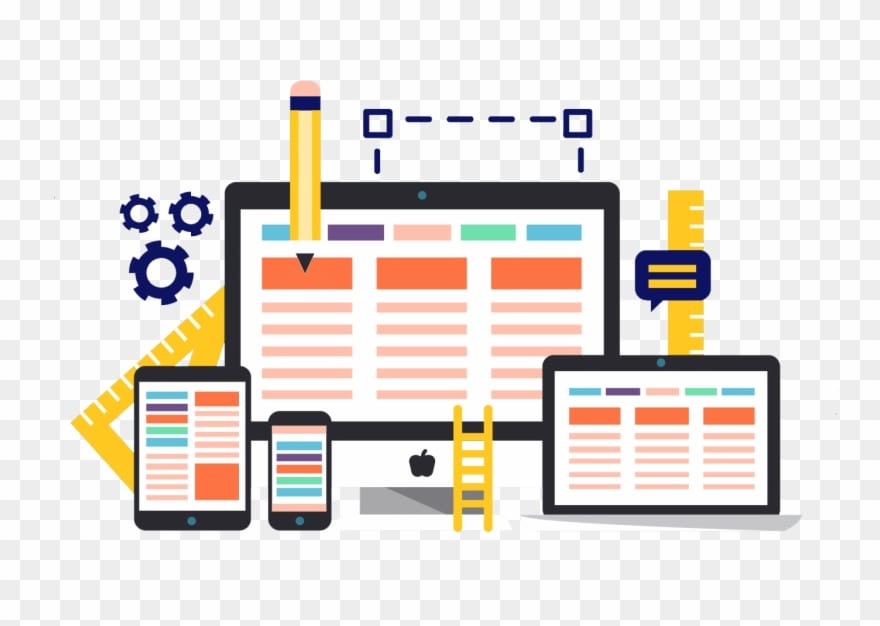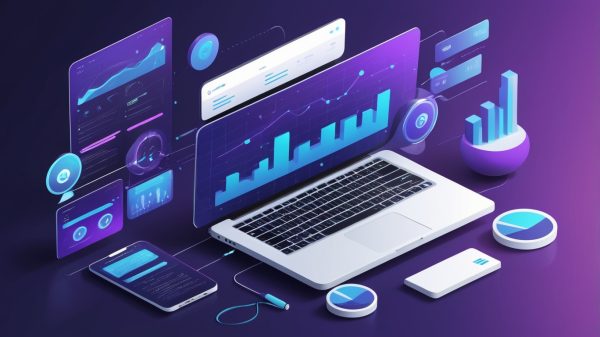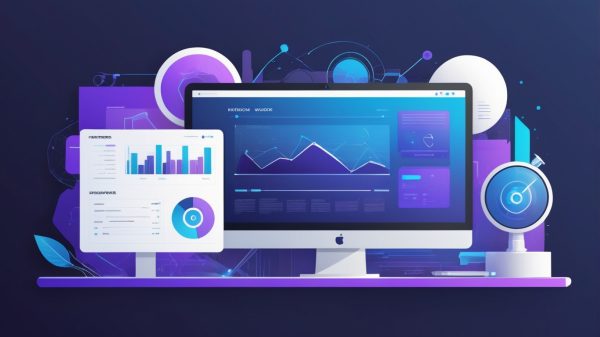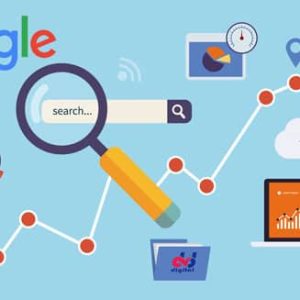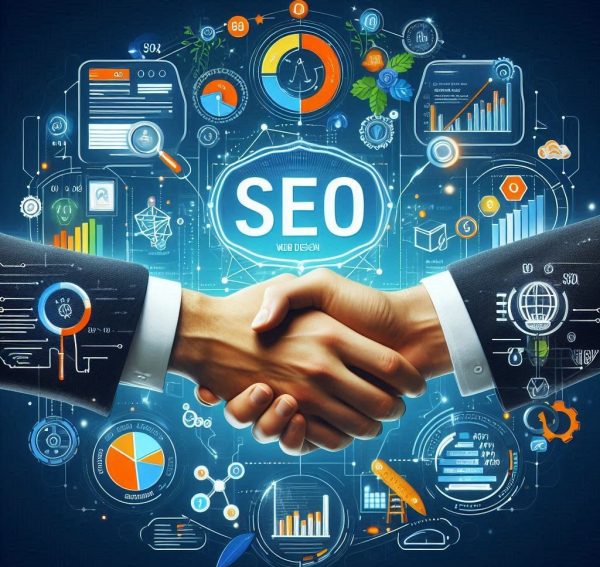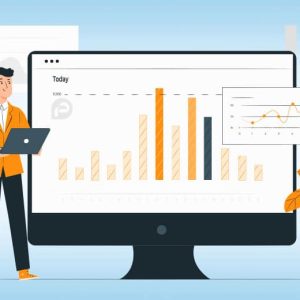SEO and Web Design are two key elements to a website’s success that are closely related to each other. Many businesses believe that SEO is limited to content optimization and link building, while web design also has a significant impact on a site’s ranking in search engine results. Proper design can improve the user experience (UX), increase site speed, and ultimately lead to better search engine rankings.
In this article, we’ll explore five ways that SEO and web design are related and explain how these two factors can work together to grow a website.
فهرست مطالب
Toggle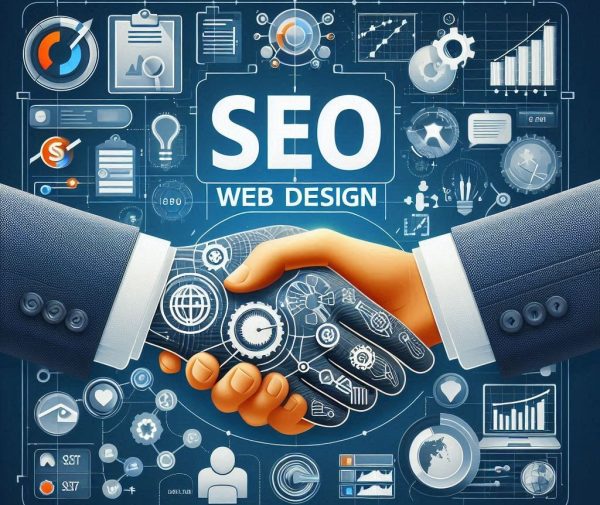
1. Site Loading Speed and Its Impact on SEO
One of the most important SEO factors that is directly affected by web design and one of the five ways that SEO and web design are related is page loading speed. If a website is slow, users are not inclined to stay on it and will leave it quickly. This increases the bounce rate and is considered a negative sign for the quality of the site by Google.
Design factors that affect site speed include the following:
- Large amount of images and videos
- Use of unoptimized code and heavy JavaScript
- Not using browser cache and content delivery network (CDN)
- Complicated and inappropriate design that increases loading time
Optimization solutions:
- Compress images without reducing quality (using tools like TinyPNG)
- Use lightweight and optimized code
- Enable browser cache to load pages faster
- Reduce the number of HTTP requests for Site Performance Optimization
2. Responsive Design and Its Impact on SEO
Today, more than 50% of Internet users use mobile devices for searching. Google has also considered Mobile-First Indexing as one of its main criteria for ranking sites.
A responsive design means that the website is displayed correctly on all devices (mobile, tablet, laptop) and provides an optimal user experience. If a site is not optimized for mobile, it will not only affect the user experience, but also reduce its ranking in Google.
Responsive design features:
- Use modern frameworks like Bootstrap
- Adjust font sizes and images for proper display on mobile
- Create large, clickable buttons for mobile users
- Test your site design in Google tools like the Google Mobile-Friendly Test
3. URL Structure and Easy Navigation
URL structure and navigation in website design play an important role in search engine optimization. This important feature is one of the five ways that SEO and web design are related. If users and search engines cannot easily find different pages on your site, this will negatively impact SEO.
Characteristics of an optimal URL structure:

✅Be short and readable (for example: example.com/seo-tips)
✅Include keywords relevant to the page
✅Be free of unnecessary characters such as ?id=123
✅Use hyphens (-) instead of underscores (_) to separate words
In addition, the site navigation menu should be simple and functional so that users can easily navigate to the sections Different parts of the site can be accessed. If users have trouble finding the information they are looking for, they are more likely to leave the site, which will have a negative impact on SEO.
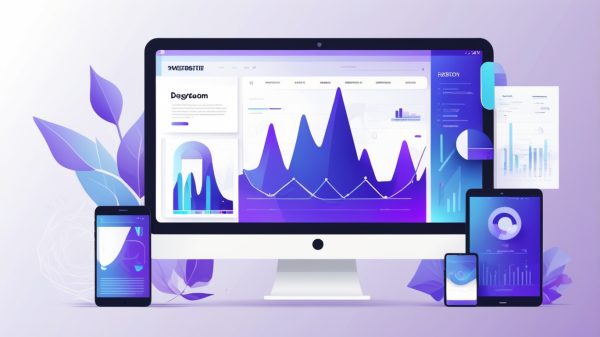
4. Optimize images and visual content
Images are an important element of website design that, if not optimized properly, can slow down your site. Additionally, images can also attract inbound traffic through Google Image Search, but only if they are properly optimized.
Important tips for optimizing images for SEO:
✔️Use compressed formats like WebP, JPEG, PNG
✔️Reduce image size with tools like TinyPNG or ImageOptim
✔️Use ALT tags to describe the image content
✔️Choose a suitable name for the image file (for example: seo-web-design.jpg instead of image123.jpg)
5. User Experience (UX) and Bounce Rate
User Experience (UX) is one of the most important factors that connects web design and SEO. Google uses user behavioral metrics to determine the quality of a website.
One of the key metrics in this regard is the bounce rate. The bounce rate shows how many users left the site without interacting with it. If the web design is poor and the user cannot quickly find the information they need after entering the site, the bounce rate will increase, which will ultimately have a negative impact on SEO.
Solutions to improve UX and reduce bounce rate:
- Use a clean and legible design with appropriate colors
- Use standard fonts and appropriate sizes for texts
- Create attractive and readable content with short paragraphs
- Use clear and distinct CTA (Call to Action) buttons
Conclusion
In this article, we discussed five ways that SEO and web design are related. We explained that web design and SEO are two inseparable elements in the success of a website. Without optimal design, even the best SEO strategies cannot perform optimally. Factors such as site speed, responsive design, URL structure, image optimization, and user experience have a direct impact on a site’s ranking in search engines.
To achieve the best results, website owners should pay attention to site design and SEO optimization simultaneously. A website with good design and proper SEO not only looks better in search engines, but also attracts users and increases the conversion rate.
📌 Take action now!
If you want your site to rank higher in Google search results and attract more users, Check your website design for SEO principles right now! Prioritize speed optimization, site responsiveness, user experience improvement, and image optimization.
✅Need more guidance?
If you are looking for more specialized solutions to improve your SEO and website design, you can work with an SEO and website design expert Blue Web Consult to develop the best strategy for your website growth. 🚀
Initial publication date: 1400/10/07Update date: 1404/01/10

